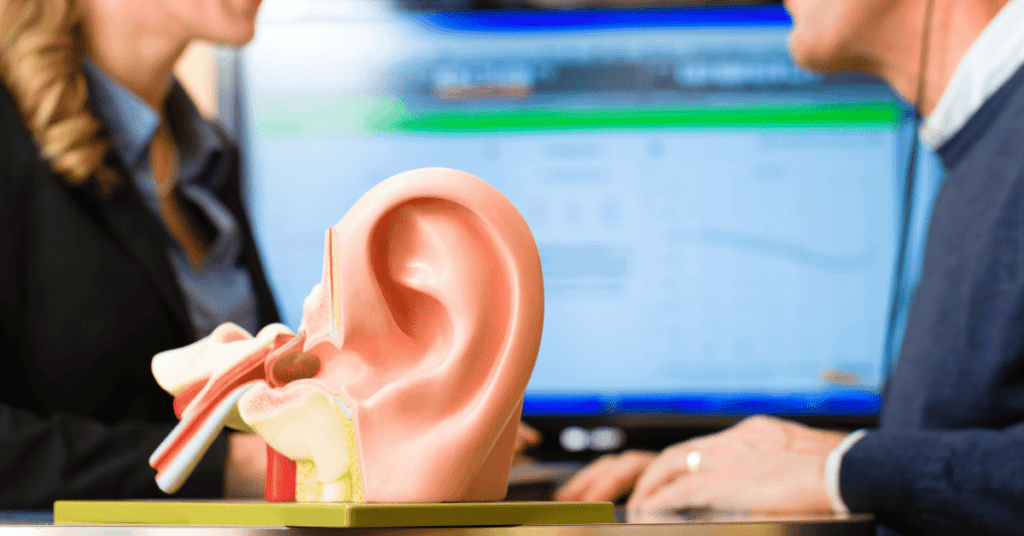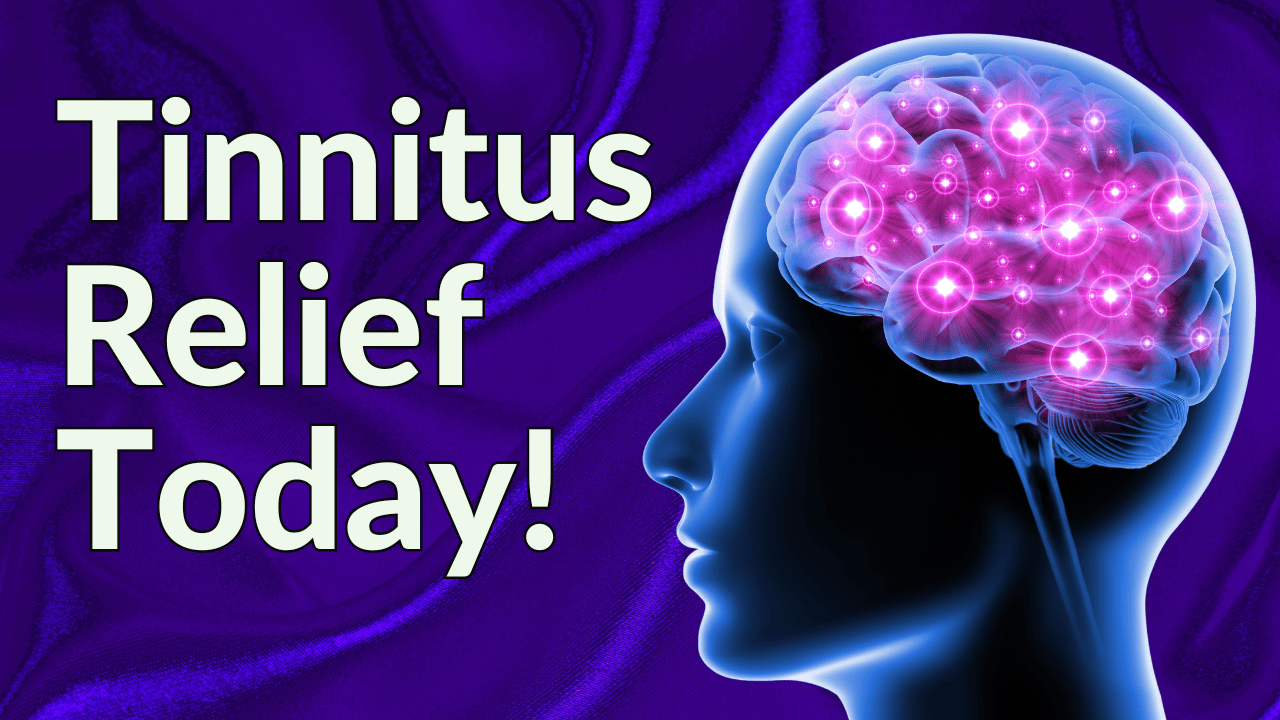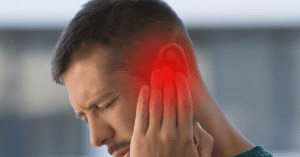Current estimates suggest that as many as 2 to 8 Americans are chronically dehydrated, or do not consume an adequate amount of water each day. Because dehydration is such a substantial issue in the United States, there is a great deal of interest in the many effects of dehydration, and how those effects might splinter out into other conditions and issues. Is it possible to experience tinnitus or make tinnitus worse as a result of inadequate fluid consumption? We’ll dive into the effects of dehydration on auditory function below, including how inadequate intake can impact the auditory nerve, overall health, and blood pressure.
Dehydration And It’s Symptoms
Our bodies need fluids in order to carry out their typical functions, and dehydration occurs when a person’s body loses more fluids than it takes in. Symptoms of dehydration may include thirstiness, infrequent urination (with dark-colored urine when it does occur), fatigue, confusion, and dizziness. Dehydration may seem easy enough to overcome, but when chronic dehydration sets in, it can be far more difficult to correct than simply drinking a few cups of water.
"Treble Health helped me reduce my tinnitus by about 80%, and now I can live my life again!"


"Treble Health helped me reduce my tinnitus by about 80%, and now I can live my life again!"
– Steve D.
Book a free consultation to learn which Treble Health solution is right for you. Join Steve and thousands more who have found lasting tinnitus relief.
Over time, dehydration symptoms can grow more extreme, and lead to the following symptoms:
- Impaired heart health
- Headaches
- Brain fog and difficulty concentrating
- Muscle weakness
- Constipation
- Impaired kidney health
Although these are all directly linked to chronic dehydration, when the body’s natural processes are impaired by dehydration and heart and kidney health suffer, it can lead to heightened stress responses, an off-kilter central nervous system, and even movements toward cardiovascular disease.
What Causes Dehydration?



Dehydration can have a variety of causes. When a person experiences an illness resulting in diarrhea and/or vomiting, dehydration can be a common result which is especially true if they are not able to drink plenty of liquids in order to replace the fluids lost. Another cause of dehydration may include excessive sweating. Additionally, certain medications (for example, antihistamines, blood pressure medicines, chemotherapy, diuretics, and laxatives) can also result in dehydration. If you are taking one of these medications and think that you may be experiencing dehydration, make sure you follow up with your prescribing provider in order to discuss your symptoms. Some individuals may worry that coffee consumption may lead to dehydration, but evidence suggests that moderate levels of coffee intake does not lead to dehydration.
Dehydration can also be caused by inadequate intake of electrolytes. While water itself is a great source of fluid, there may be instances in which electrolytes are not supplied adequately, and an electrolyte-rich drink is substituted. This is the reason for athletes frequently drinking sports drinks before, during, and after practices and performances; if sweat is the reason for fluid loss, it also means sodium loss, and these nutrients must also be replenished.
Who Is At Risk For Dehydration?
Anyone whose body loses more fluids than it takes in would be at risk for dehydration. However, infants and young children may be at particular risk because they can frequently experience diarrhea and are unable to hydrate themselves. Additionally, older adults may also be at risk for dehydration due to specific age-related factors that may increase their susceptibility to the condition. Athletes are also considered at greater risk than the average population, as they may be more prone to losing fluids frequently.
What Is Tinnitus And What Are Its Symptoms?
Tinnitus is a condition in which an individual hears phantom noises. Unlike the noise that can occur immediately following exposure to loud noises or hyper-sensitive hearing, tinnitus-related ringing is not a result of an external source. Tinnitus triggers can come from numerous sources, and both mild and severe tinnitus often requires several different types of intervention to resolve or lessen.
Tinnitus symptoms are fairly straightforward: ringing, rushing, or roaring in the ears. These tinnitus symptoms can be accompanied by hearing loss or ear infections, but do not necessarily have definitive causes or ties. Tinnitus patients can come from all walks of life, and tinnitus symptoms often range in their severity even within the same patient.
Is Dehydration Related To Hearing Loss And/Or Tinnitus?



Some evidence suggests that there may be a link between auditory and/or vestibular symptoms (such as hearing loss, tinnitus, dizziness) and dehydration. Some individuals who receive a diagnosis of Meniere’s disease find that symptoms of dehydration may interact with their symptoms. Notably, Meniere’s disease is characterized by changes in fluid in the inner ear and commonly results in hearing loss, tinnitus, ear fullness, and dizziness. It has also been established that increasing or decreasing dehydration in the inner ear can increase tinnitus perception or decrease tinnitus perception.
Researchers suggest that a proper diet and good hydration (i.e., avoiding malnourishment and dehydration) can be beneficial in promoting healthy habits that lower the chance of experience deficiencies that may make tinnitus worse.
Dehydration may make tinnitus symptoms worse in one unexpected way: immunity. A lack of water can negatively impact one’s immune system, from increased or decreased blood pressure, to greater susceptibility to illness (including those affecting the middle ear or inner ear). Whether it is a sinus infection that begins to worsen tinnitus, or something else entirely, there are numerous tinnitus triggers that can occur in response to the trickle effects of not adequately hydrating.
Other Links Between Tinnitus And Dehydration
Ringing in the ears can be caused by many different conditions, some of them as simple as differences or issues with head and neck muscles. Tinnitus sufferers do not always have obvious causes, like constant exposure to loud noises, nor do obvious things always make tinnitus symptoms worse. Severe tinnitus can often be a result of numerous issues, like exposure to loud noises, increased blood pressure, and high stress responses.
Impaired blood flow and restricted blood vessels have also been linked to ongoing dehydration, and both of these conditions have been tied to tinnitus. One particular type of tinnitus, called pulsatile tinnitus, involves the blood vessels. Rather than the standard ringing in the ears, a tinnitus sufferer with pulsatile tinnitus actually hears the rush of blood flowing through blood vessels. Because this particular type can impact the carotid artery and other major arterial systems, it is vital to speak with a medical professional if signs of this type of tinnitus are present.
Stress levels can be higher in people who are dehydrated, impacting the ability to get good sleep, and leading to other issues, such as the onset of TMJ disorder, tight neck muscles, and even some changes to neural pathways. Fortunately, lifestyle changes (including drinking more fluids) can help combat all of these issues. Anxiety can also respond to lifestyle changes, but anxiety often begins for more complex reasons than heightened stress or inadequate water intake.
Tinnitus Treatment
Barring the onset of tinnitus caused by inadequate hydration, there are numerous options for tinnitus treatment. Some of the most common tinnitus treatment options are:
- Hearing aids. Hearing aids help amplify outside noises, causing tinnitus to fade into the background. Although hearing aids essentially act as the opposite of ear protection, many tinnitus patients experience relief from tinnitus symptoms when hearing aids are utilized.
- White noise machines. Some people find that hearing aids are not adequate, and aim to drown out the noise of tinnitus. By increasing noise exposure or utilizing background noise, some find relief from listening to constant buzzing or ringing.
- Cognitive Behavioral Therapy (CBT). Although tinnitus is a condition that affects the ears, the ears are not the only system impacted by tinnitus. Sleeping, mental health, focus, and more can all experience a dock in response to tinnitus symptoms, and CBT can help combat some of the mental health issues associated with the disorder.
- Tinnitus Retraining Therapy (TRT). TRT is a multi-faceted technique to treat tinnitus that involves using white noise to avoid common tinnitus triggers, as well as counseling practices designed to ease the anxiety and depression that can accompany symptoms. TRT is designed to help keep tinnitus spikes at bay, or to provide the necessary tools to manage a tinnitus spike should one occur.
Whether you know exactly what it is that is prone to trigger tinnitus spikes, or a tinnitus spike is wholly unpredictable, making sure that the eustachian tube and ear canal are both in good working order is usually the first step, followed by addressing any additional concerns linked to tinnitus spikes. From improving negative thoughts about the condition, to avoiding wax buildup, to staying hydrated at all times, treating tinnitus does not have to be an exercise in futility.
Conclusion
Tinnitus is a condition affecting the auditory nerve and inner and middle ear. Although dehydration is not known to consistently cause tinnitus, both acute and chronic instances of inadequate dehydration can exacerbate tinnitus and lead to other issues that trigger tinnitus, including high blood pressure, damaged hearing health, and even ear infections, when stress levels spike.
Getting enough fluids from healthy sources rather than other, caffeinated drinks can help support hearing health. Because the ears are somewhat reliant on the presence of fluid to hear and function properly, not having enough fluid can eventually cause harm to the body and brain, including the ability to hear accurately and without phantom noise.
Managing Tinnitus With Treble Health
At Treble Health, we recognize the significant impact that tinnitus can have on your life. If you have any questions, we encourage you to schedule a complimentary telehealth consultation. When you book a consultation, you will be connected with an audiologist who specializes in tinnitus management and is committed to helping you find relief. Our approach is personalized and focused on providing you with the best possible outcomes.
In our 20-minute Zoom consultation, we will thoroughly explore your specific case, answer all your questions, and provide tailored recommendations to manage your tinnitus effectively. Start your journey to a quieter life today by scheduling your free consultation.
Next Step: Book Free Consultation
- 75% of patients reduced their tinnitus within three months after following our recommendations.
- "I feel like Treble Health literally gave me my life back." - Randy S. (verified customer)
- Join thousands of people who have reduced their tinnitus after scheduling a free consultation.




















